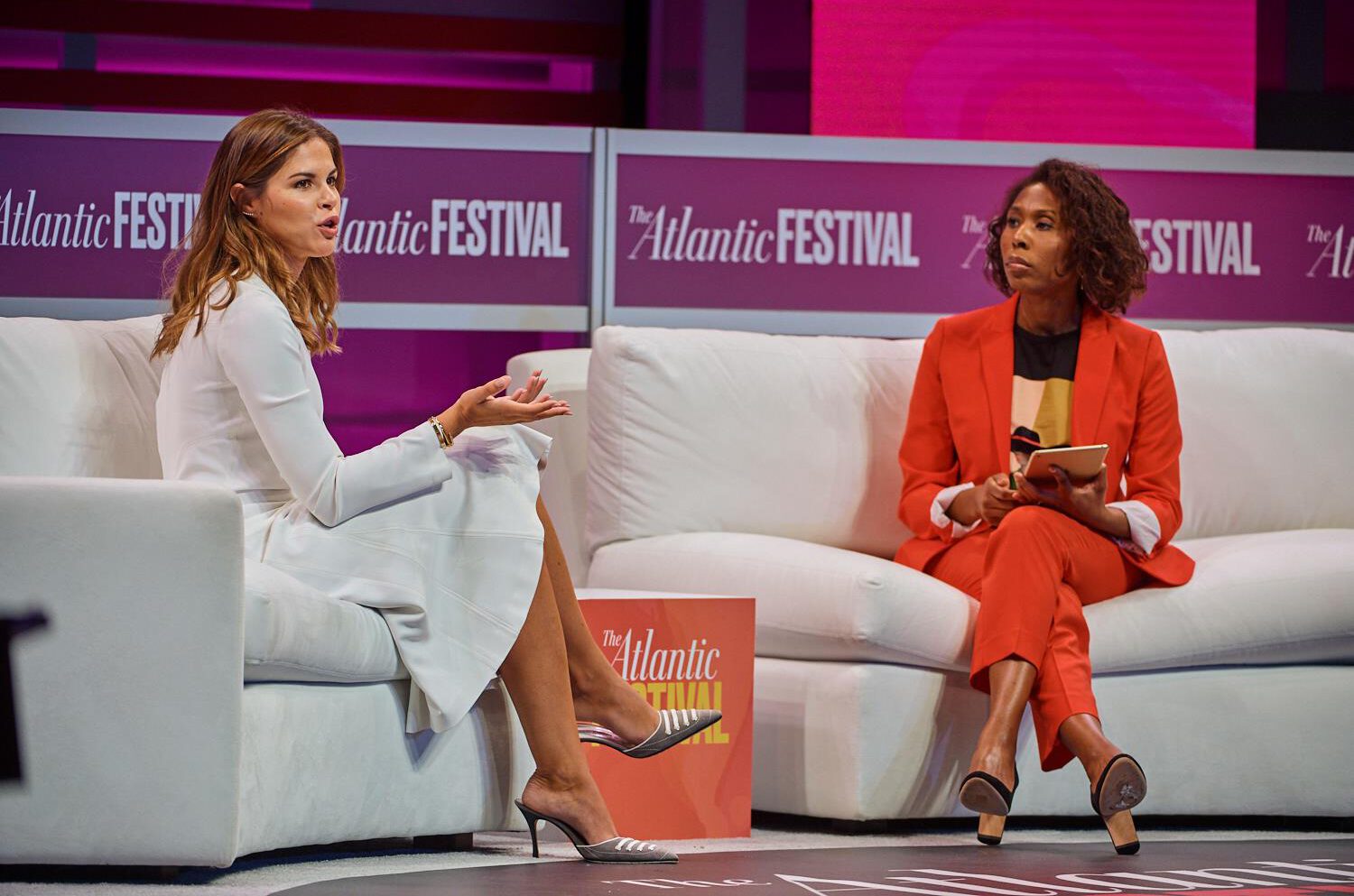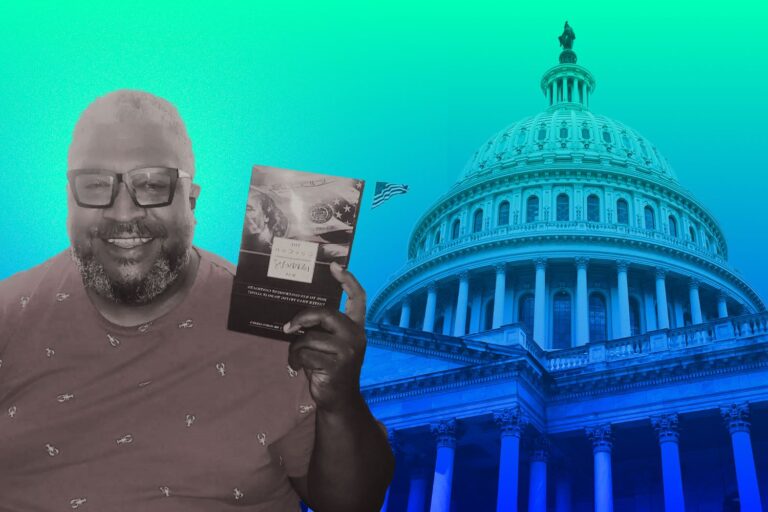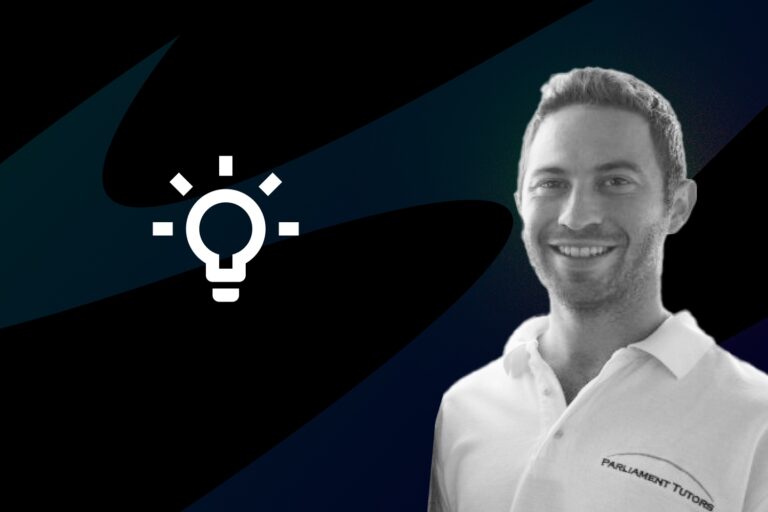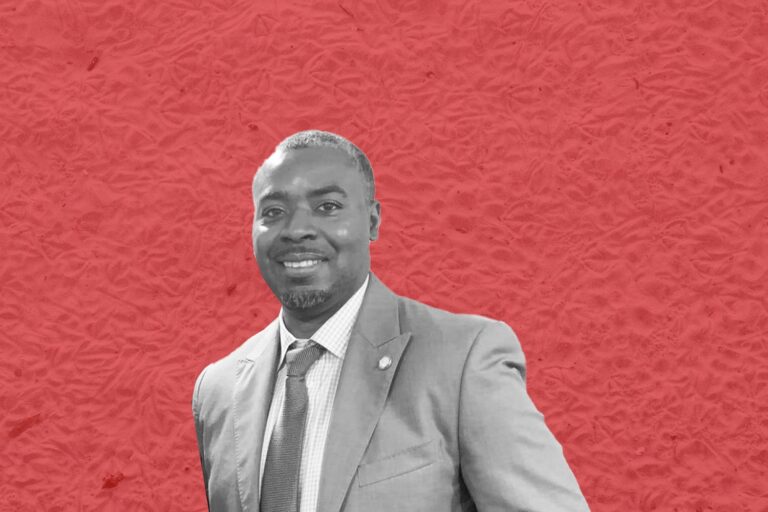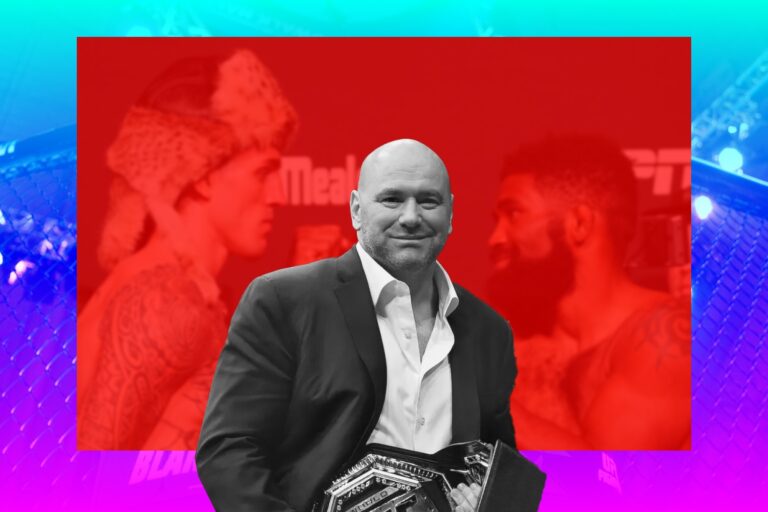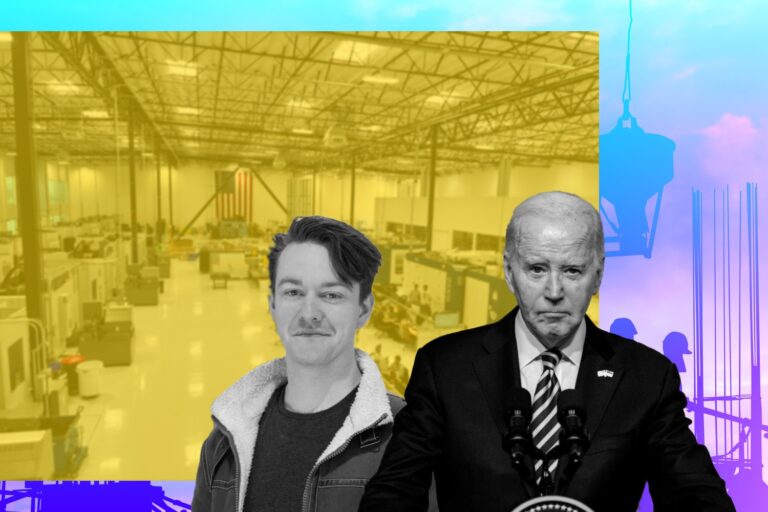Emily Weiss’s Entrepreneurial Journey to Make Billions on Effortless Aesthetics
Glossier a beauty guru that just marked its valuation at $1.2B in 2019 and turned Emily Weiss – the company’s founder into one of the rare female founders and CEOs of a unicorn company.
Launched its first product in 2014 – the company declined to disclose revenue figures, but said it experienced 600% growth from 2015 to 2016. Raised more than $34M in three rounds of funding over three years with the largest round of $24M in 2016.
The company’s founder has found her place in this massive space of cosmetics – which worth $532B globally, according to Forbes – dominated by giants like L’Oreal or Estee Lauder. Even though, Glossier has its own niche and compete with specific rivals like Stowaway and Onomie, the brand still on the way to differentiate itself by going against the ‘too much effort’ of traditional beauty ethos.
“The beauty industry historically won dollars by making women feel like they were not enough,” says Emily Weiss, CEO and Founder of Glossier. Who is Weiss and her compelling journey on growing into an entrepreneur, a leader? And the becoming of her brand.
An Effortless Aesthetic That Makes Billion Dollars Business
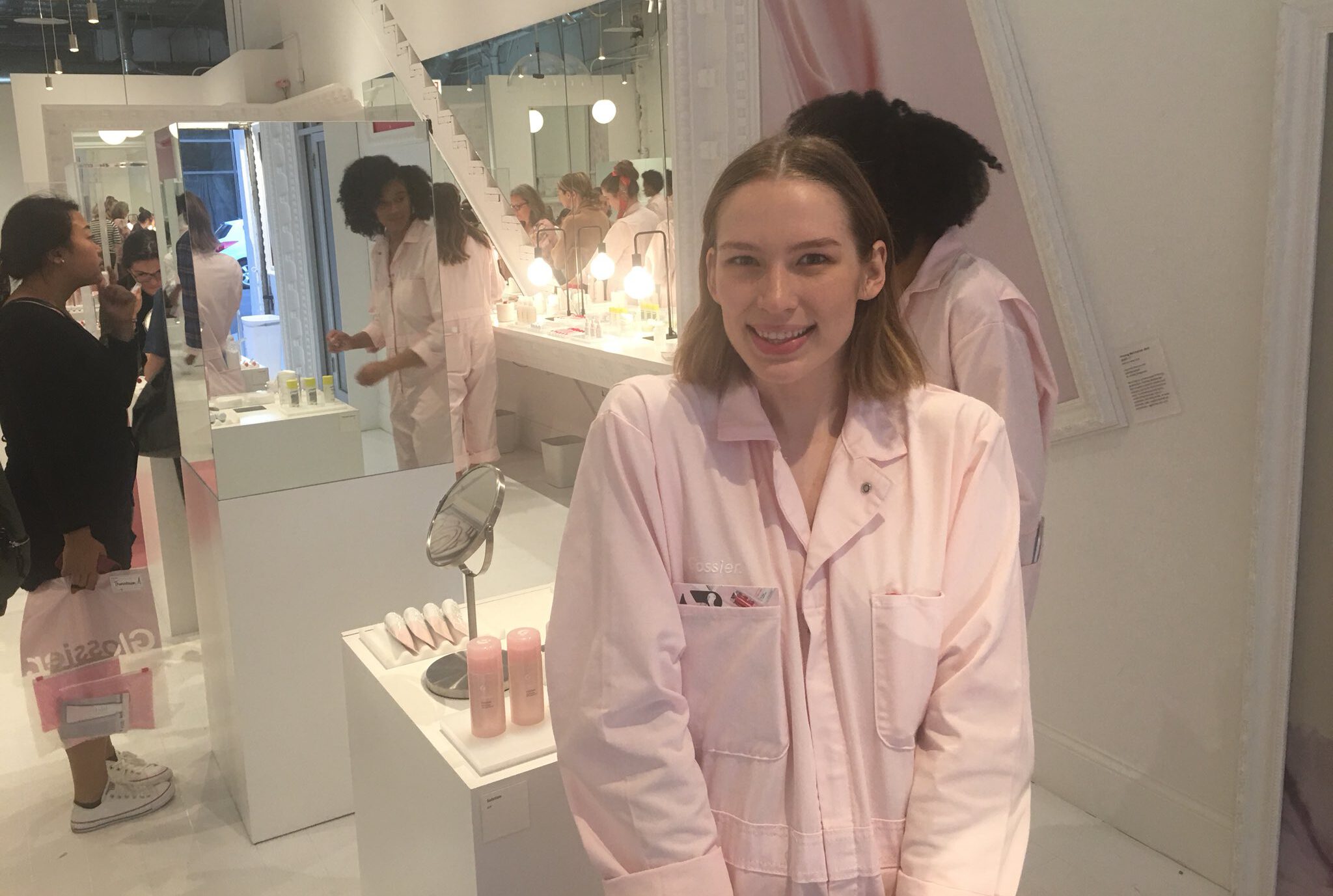
From a fashion assistant to a Vogue magazine stylist and near the end of her tenure at Vogue, the founder decided to put together everything she has gathered from the past years in the industry to dream up something of her own. A blog forum called Into the Gloss
Admittedly not knowing much about HTML or have many experiences in editing or writing, Weiss, however, knew she has a lot to do with the long-gone years in the fashion space. In 2010, beauty blogging was not something new or unique, but Weiss’s approach and her story was.
On the channel, the founder goes transparent about her industry, not just from the runway, she talked about real-life beauty products, and her practical authentic style. Plus, the winning card of Into the Gloss is its interview headlines with models and influencers in the beauty and fashion publications world – who through the blog share their live experiences and advice for Weiss’s audience. And that is what millennial women catch on, the INC called that “an effortless aesthetic”.
On the Way Looking for a Lot of Answers
I always thought that Into the Gloss was and is the beginning of something bigger. I was looking for a lot of answers. I wanted a deeper understanding of how women out in the world felt about beauty—which things mattered to them, and which didn’t. Glossier came about when I asked myself: ‘How can we create really essential products when there is so much out there in the world?’
Fast forward to 2014, at age 29, Weiss announced on her blog about a cosmetics line called Glossier.
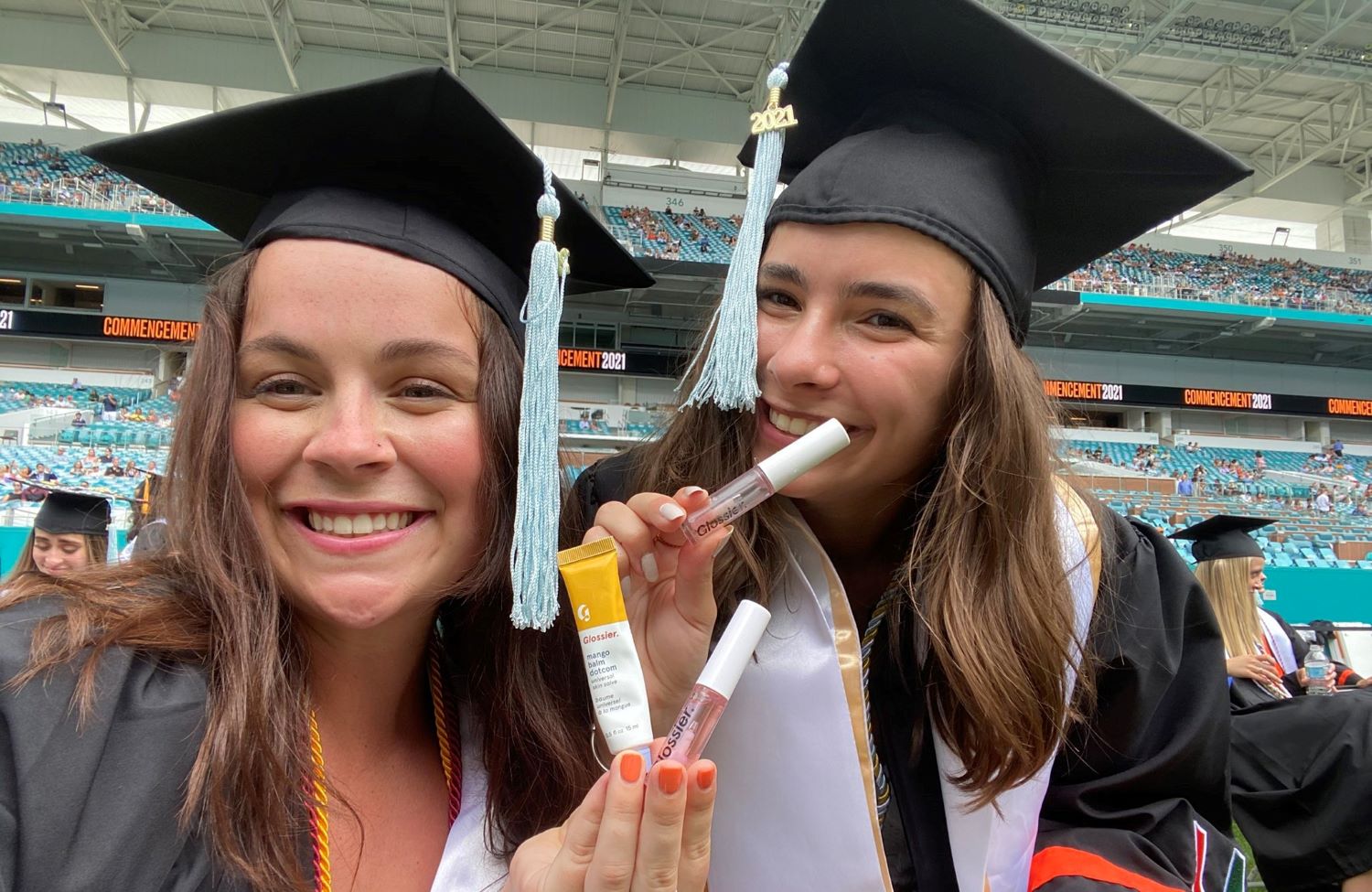
The founder recalls, in the earlier time she noticed how makeup artists at the runway always has more skincare products than makeups on their bags. That when she knows ‘putting on a bunch of makeup’ is getting outdated. “I learned this from being backstage with makeup artists and watching how much time they would spend prepping the skin versus applying makeup.”
The rise of ‘no-make, glowy, dewy’ makeup is coming, and as Weiss wants to bring it to the mass, Glossier came into being.
“I also think that’s the way the world is moving. People are spending more time on making social media content, and less time doing full faces of makeup, because there’s a new filter every day that can give you a new look.” Makeup sales, she says, have flattened in the US, while skincare sales are rising. Pricing that falls between drugstore and concept shop, Glossier with its early focus on skincare and its positive, you-look-good affirmations, is already in the perfect place.
Prior to the Launch
After two years of blogging and interacting with audiences, Weiss knew exactly what women are looking for but could not find on the shelves. She than have Nick Axelrod – who also worked in publishing on board to be her blog’s editorial director. While readership is tripled and article counts are upped, the last touch she needed was some money to turn those followers into buyers.
“When I started approaching venture-capital firms for funding, I heard the word ‘no,’ a lot,” Weiss later told Quartz. “Eventually I figured out that as much as these seasoned investors were assessing whether I was the right fit for them, I was doing the same.”
In 2013, Weiss raised about $2M and put it forward to have tech and designs for her new ecommerce platform. 2014 to reveals the brand, and officially launched the first product idea – a moisturizer that would not aggravate acnes but comes of a combo of $80 or separately from $12 to $26.
“I had no idea what I was doing,” Emily later admitted. “I was 28 years old. I didn’t have an MBA. I went to art school.” But she knew publications, she knew women, and she knew beauty. Emily wasn’t hemmed in by the structures that supported — but inhibited — the legacy beauty companies that were her competitors.
The Phenomenal Leap Explained: How Did It Grow So Fast?
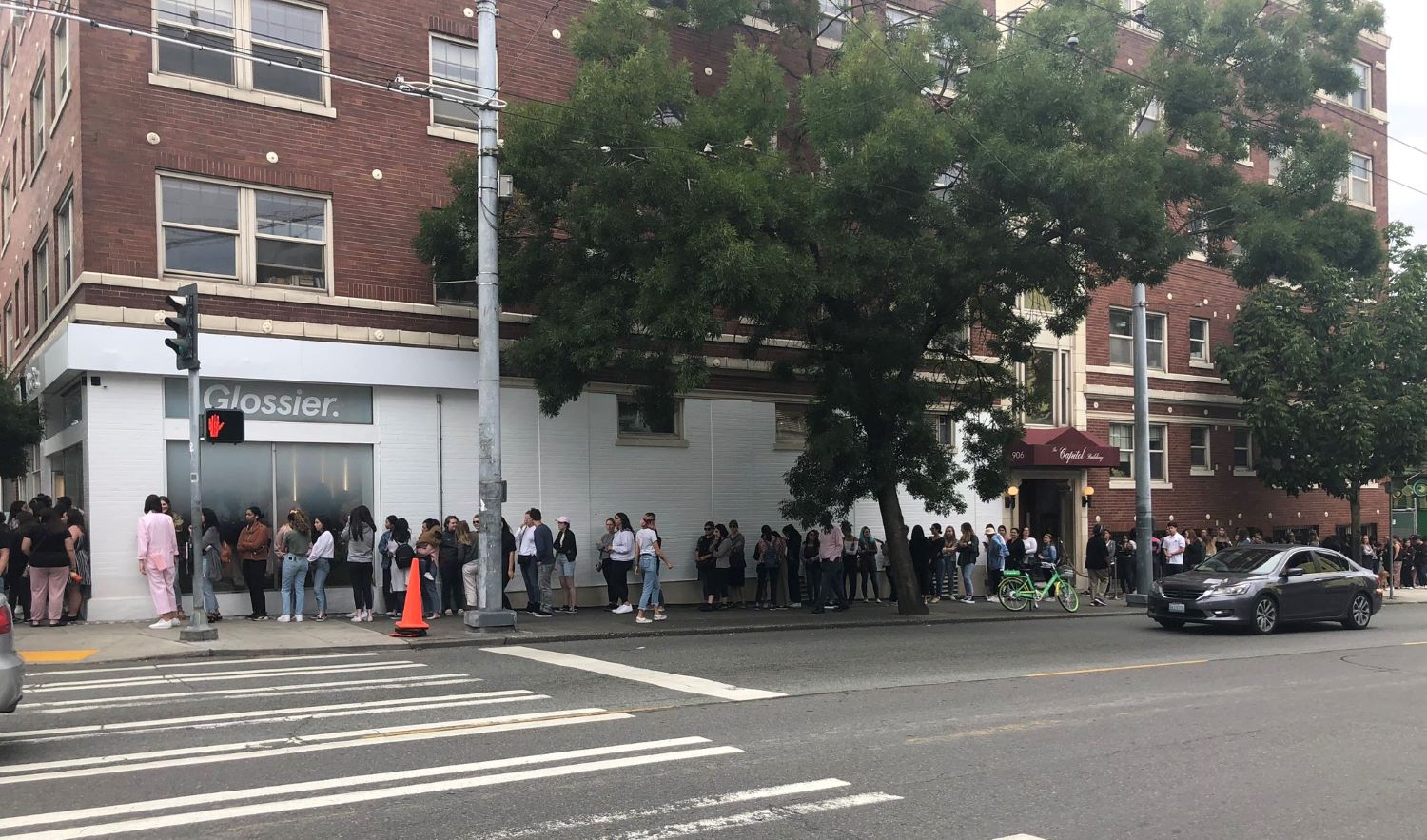
Weiss has made a strategic move to place her vision in people, to disrupt the traditional cosmetics business model and set a new blueprint for success. The founder insists on the ‘democratization of beauty’, and it has spoken for shoppers as the brand only came up with its products by asking women what they want, rather than telling them what they needed to look better.
Weiss might speak for a lot of first-time entrepreneurs and people starting their companies, saying that even though she wants it so much, she has no idea how to describe success. “I always thought Into the Gloss would be successful, but I didn’t really know what my definition of success was.” Both the blog and her company, the reason it was successful, according to the founder, was because there were so many like-minded women out there who were also dissatisfied with their beauty experiences. And how you through walk your audience and consumers through the evolution of that, to bring something better to the community that counts.
The founder also shares her secret sauce on building awareness and gaining shoppers trusts.
“There’s a very recommendation-centric culture happening in America right now. Women really enjoy talking to each other—not necessarily to salespeople or to brands—about the best products. For us, in terms of the marketing position, it was like; How can we be that friend? How can we act and talk in the way that we act and talk to each other?”
“Instagram is the number one platform that I peruse personally, and, in a way, it has become a real news source. So, it just came naturally to us to build up the Glossier community there. It was a natural place to show people the beginnings of the brand, like a living, breathing diary into our world.”
# 1 Building the Right Product
Not only entrepreneurs but giants have tripped the pitfall of self-focus, and that is what the company is trying to avoid. By making what shopper wants, Weiss knew for sure they would buy it thanks to the prime market research generated from her avid readership.
The founder also co-created her products with prospective customers – the perfume line Glossier You. The team believed that by moving the customer’s involvement further up the sales funnel, they would be sure to make what people want to buy.
# 2 Value Connections
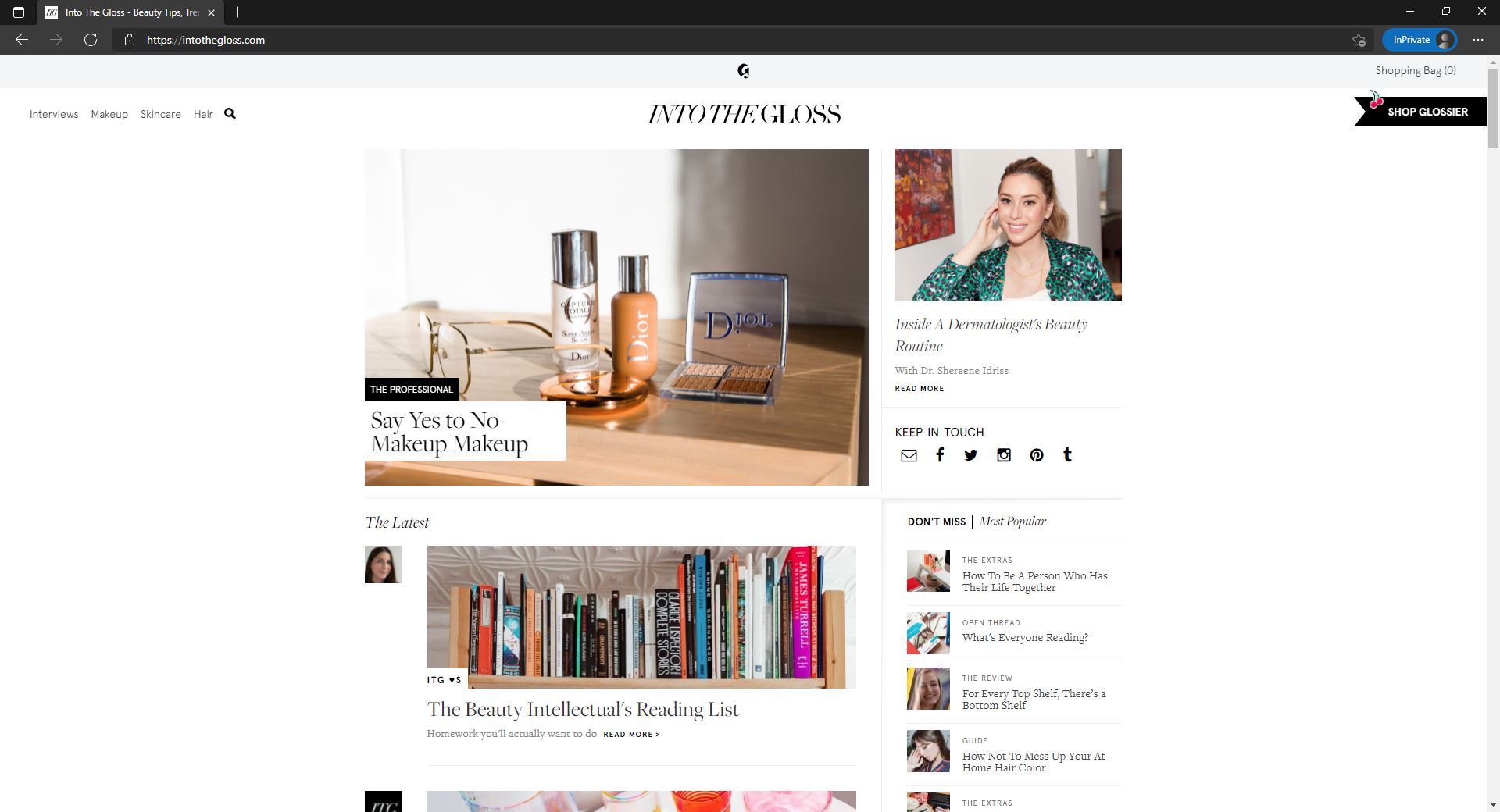
According to the company’s research, millennials and teens spend increasing amouns of time online and as blogging and tutorials are on the rise, 80% millennials women say the number one factor in their purchasing decisions is from opinion of strangers on the internet. Which translated into how important it is for beauty brands of the future to be internet savvy in a way they have not shown they can pull off yet. But there is another side of the story, mentioning e-commerce.
“One thing that I’m very, very excited for is to create this new paradigm of commerce that is much more emotional.” Amazon has done amazing job solved buying problem, Weiss claims, but it killed shopping in the process.
And increasingly, the sort of humanity of things and the connections you feel with people or the information you want from people, and the kind of human experiences are going to be harder and harder to come by. It does not mean more stores, but the way you connect with shoppers is important and to nurture that is partly what brands have to do to stay connected.
A Walk with Emily Weiss on Growing into an Entrepreneur
As a Professional
For Weiss, her first step into the fashion world was being a 15-year-old intern at Ralph Lauren thanks to a neighbor she had babysat for, and then a fashion assistant and stylist at Vogue. Gradually risen from the industry, the founder says there is a valuable lesson she learned that has partly shaped a determent woman who she is today.
“You will never get what you don’t get for”. Weiss recalls, at Vogue, she was responsible for a lot of production work which is highly detailed, and you have to be very resourceful to fit a square peg into a round hole. Day to day, the lesson appear clearly that you have to push the envelope when it comes to asking questions or making requests. If people give you the ‘that is not possible,’ ask them ‘what is possible,’ instead of just saying thank you and leaving. Along with that, is to practice on being creative in problem solving.
As an Entrepreneur and Leader
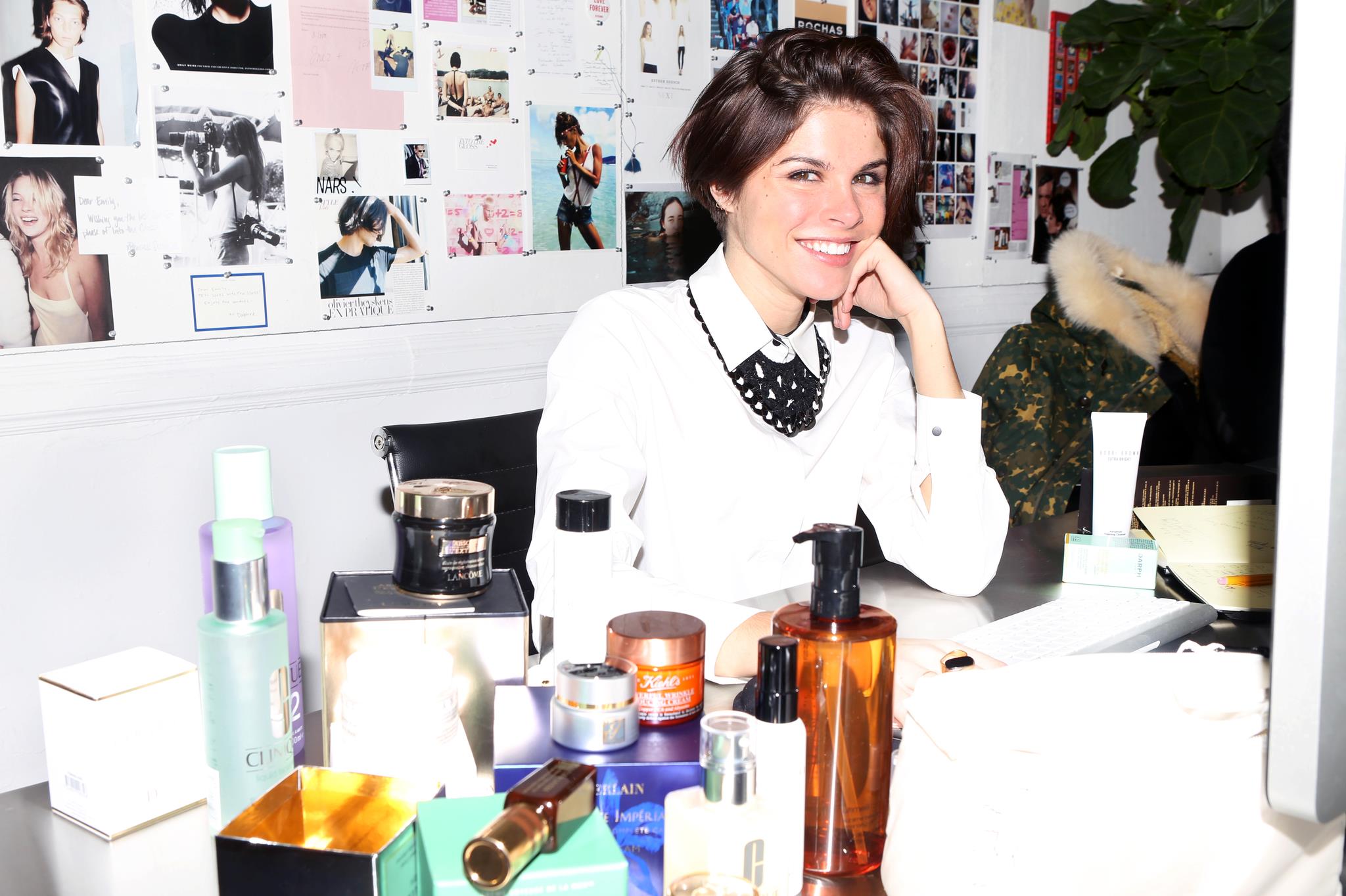
On an interview with Vox, Weiss reveals how has it changed as the company grows over the years, not only Glossier but also herself as a leader. While marked it valuation at $1.2B and employs about 200 people, the founder admits it’s a whole lot different to how it was five years ago, when they were only 10 people in an office with just four products to sell.
“We had no idea if anyone would even care. So here you are sitting with a year’s worth of work and products and, you know, heart and soul and sweat and tears. How are the stakes any less high than that?” says Weiss.
It sounds like a lot of pressure. Prior to that, Weiss’s schedule was not this tense, there were still vacations with friends from college. But as a CEO, it’s hard to afford one, “it’s a lot of responsibility, but the responsibility is to our customers and our community.”
More from the CEO life, while most platforms like Succession or ‘How I Do It’ diaries usually bring on the executives talks of tasteless smoothies and 3AM workouts, Weiss says hers is pretty simple. “On Fridays, I go to friends’ and make pizzas.” In mid 30s, taking care of your body is vital but it does not mean being a maniacal fitness.
She also mentions how success could be found just by surrounding yourself and talking to people who are always two steps ahead. Weiss learns that no one could prepares you to be a CEO, you become a CEO by being a CEO.
The Most Challenging Part
Of course, the challenge always is learning how to be. Weiss recalls the most difficult time in the last few years has been fundraising to build the next stages of the business. Trying to understand, what does it mean to take capital on? What are the best options when it comes to kind of capital? Are we doing a bank loan? Do we do venture capital? How about Kickstarter?
But most importantly, how do you actualize the dreams that you have? And as Weiss decided to raise money, she has to be prepared for a really long trying time. All market is crowded does not matter what business you are into, you have to have a strong point of view and a differentiated idea to make someone understand, particularly a room full of, who are not necessarily beauty consumers, understand something that is foreign to them and understand why something like your idea, your effort is different than what is out there. That is the mentality going through any fundraising.
The Biggest Change in Beauty Space
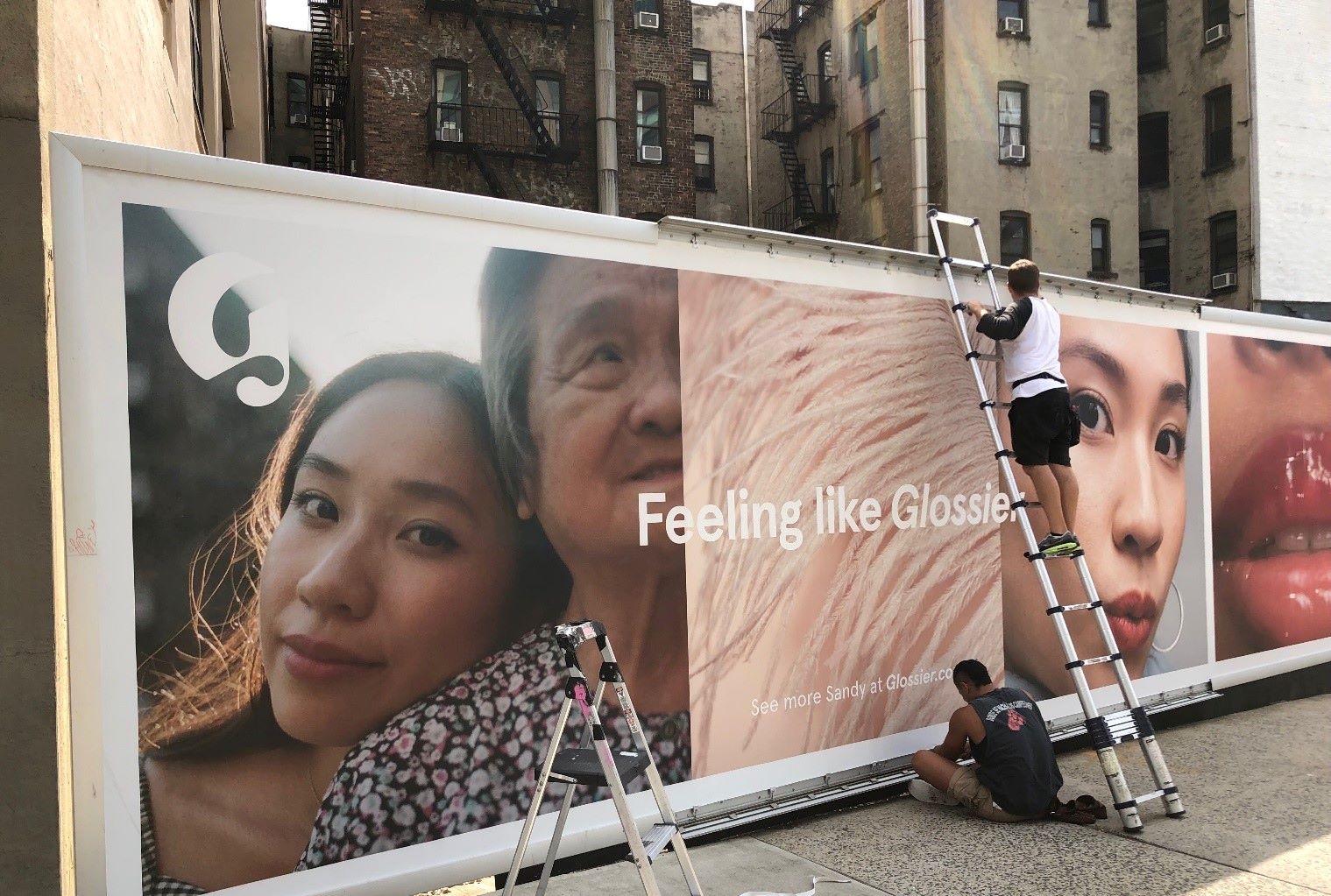
More from the beauty industry, Weiss says, Instagram is her go-to resources for keeping up to date with the space. To the entrepreneur, the biggest change that is happening now and will be more obvious in the next 10 years would be transparency about ingredient and in product quality, and after all is the character of the producer. By product transparency and quality does not mean a stringent adoption of organic ingredients only. As women today are more educated and value-conscious than ever, so not only your product but also your company has to be transparent about what you are doing. Give consumers the space where they can be their own expert to choose or dismiss product that doesn’t live up to its promises, or else they will have their own community and there is nothing you can do without knowing those data.
So that’s the huge change, when value-conscious is no longer stays at the product itself, but rather at what your brand stands for, how you treat consumers and their community.
Humans is the main part of business. Weiss says at Glossier, there are the top qualities the company looks for when it comes to hiring. “I look for hunger – a drive to prove something whether that is to yourself, your mom, your second-grade teacher.” She insists on uncover what motivates people and make sure that is in line with what motivates the company – at Glossier, is to encouraging women to take ownership of their beauty routines and be the authors of their own lives.
The Bottom Lines
The company says it has never existed through retail channels and do not have plans to drive brand that way. With its phenomenal people-powered ecosystem and connections with consumers, the company wants to nurture a direct relationship with every single person who buys anything of the brand.
With technology, the company has done three things very differently than others at that time. One is channel, second is discovery and third is listening at scale.

